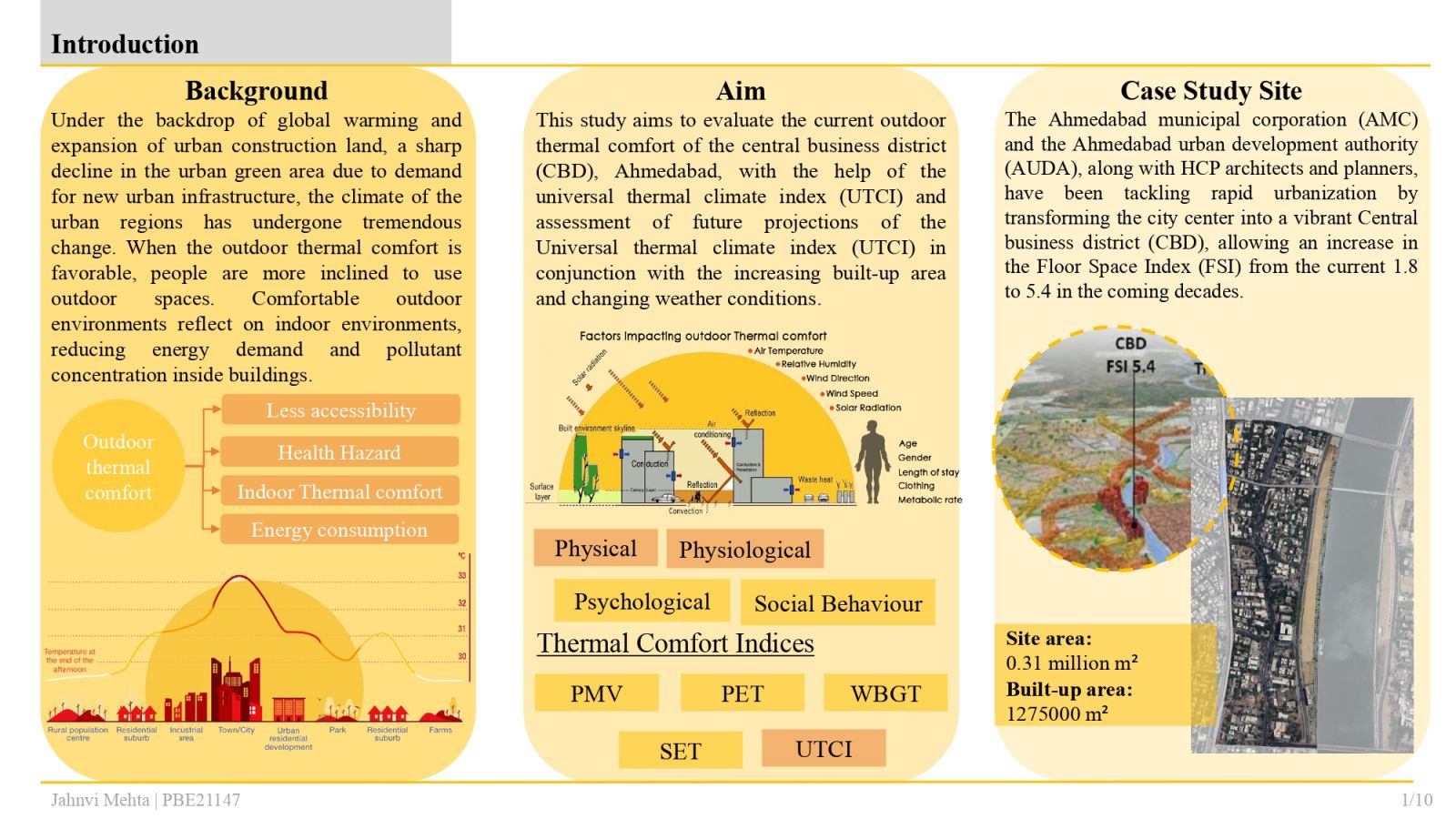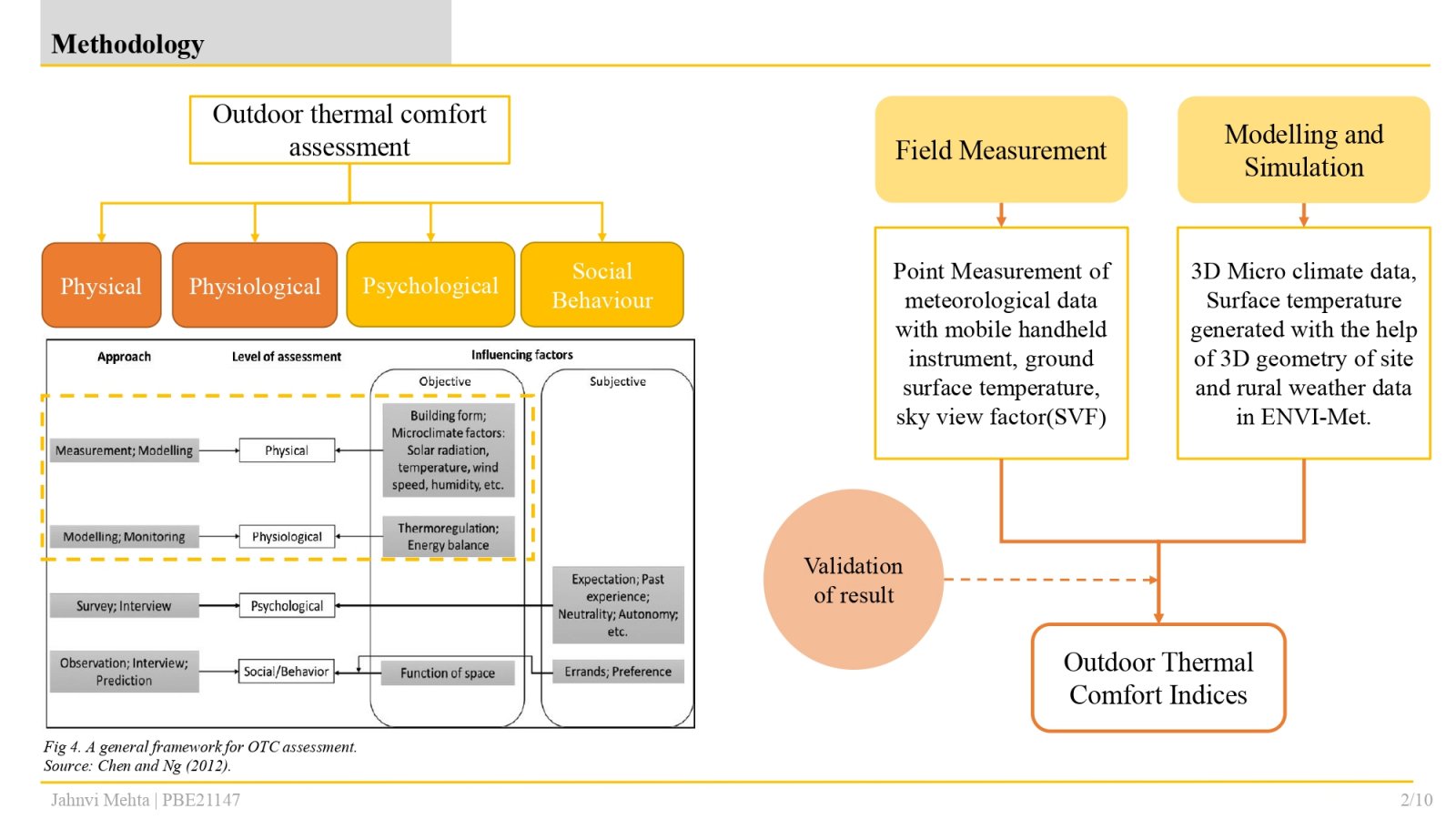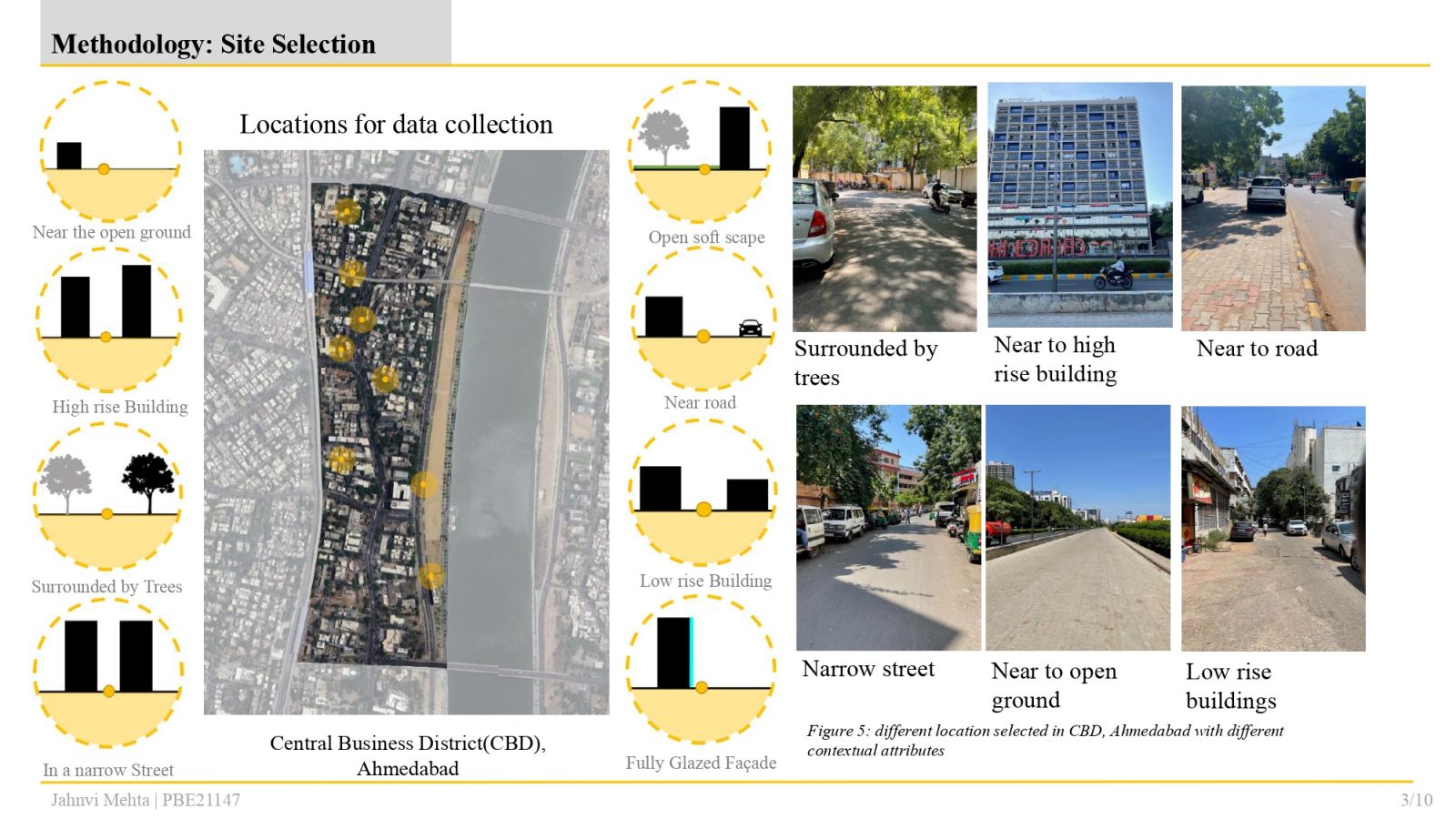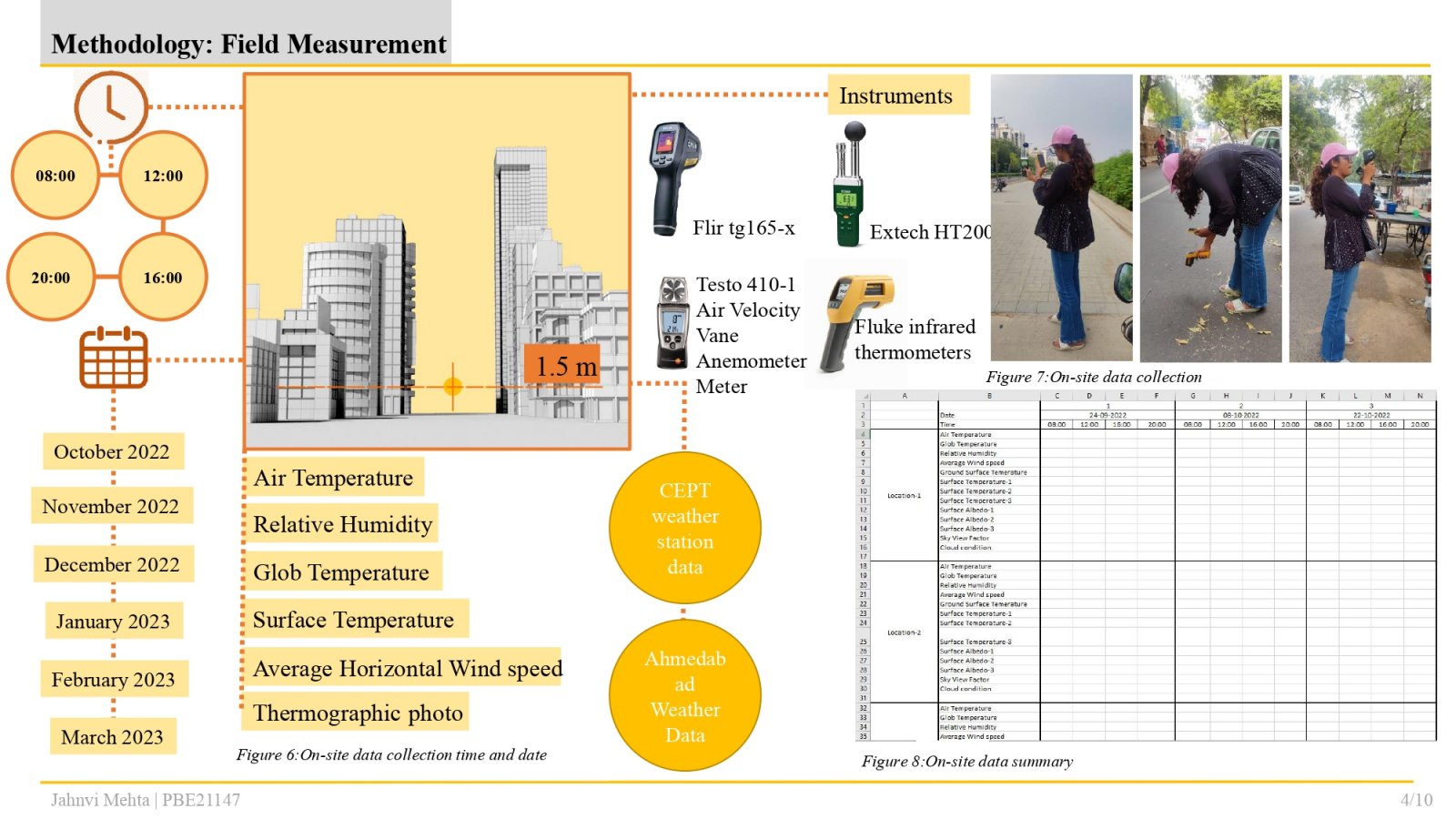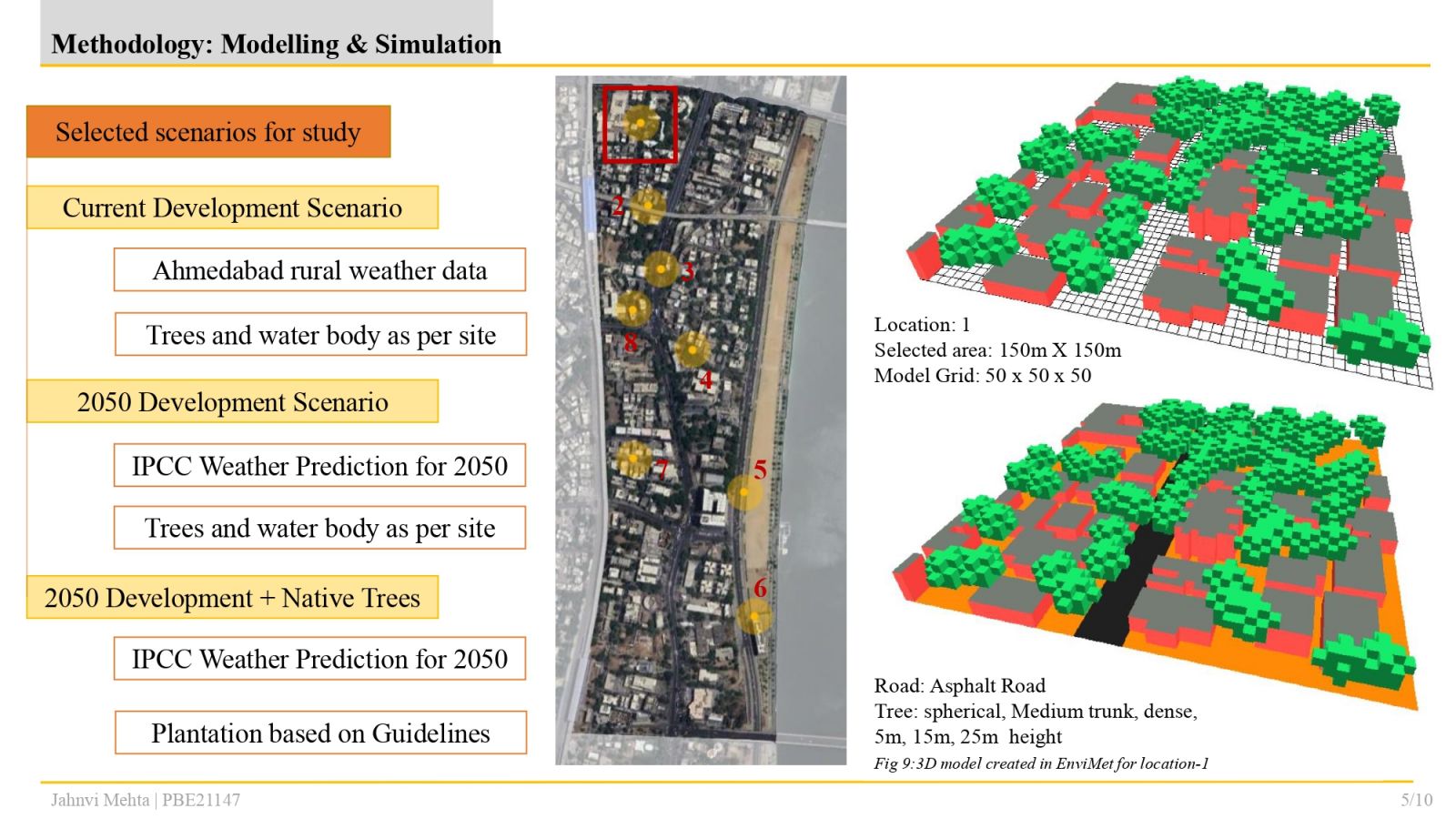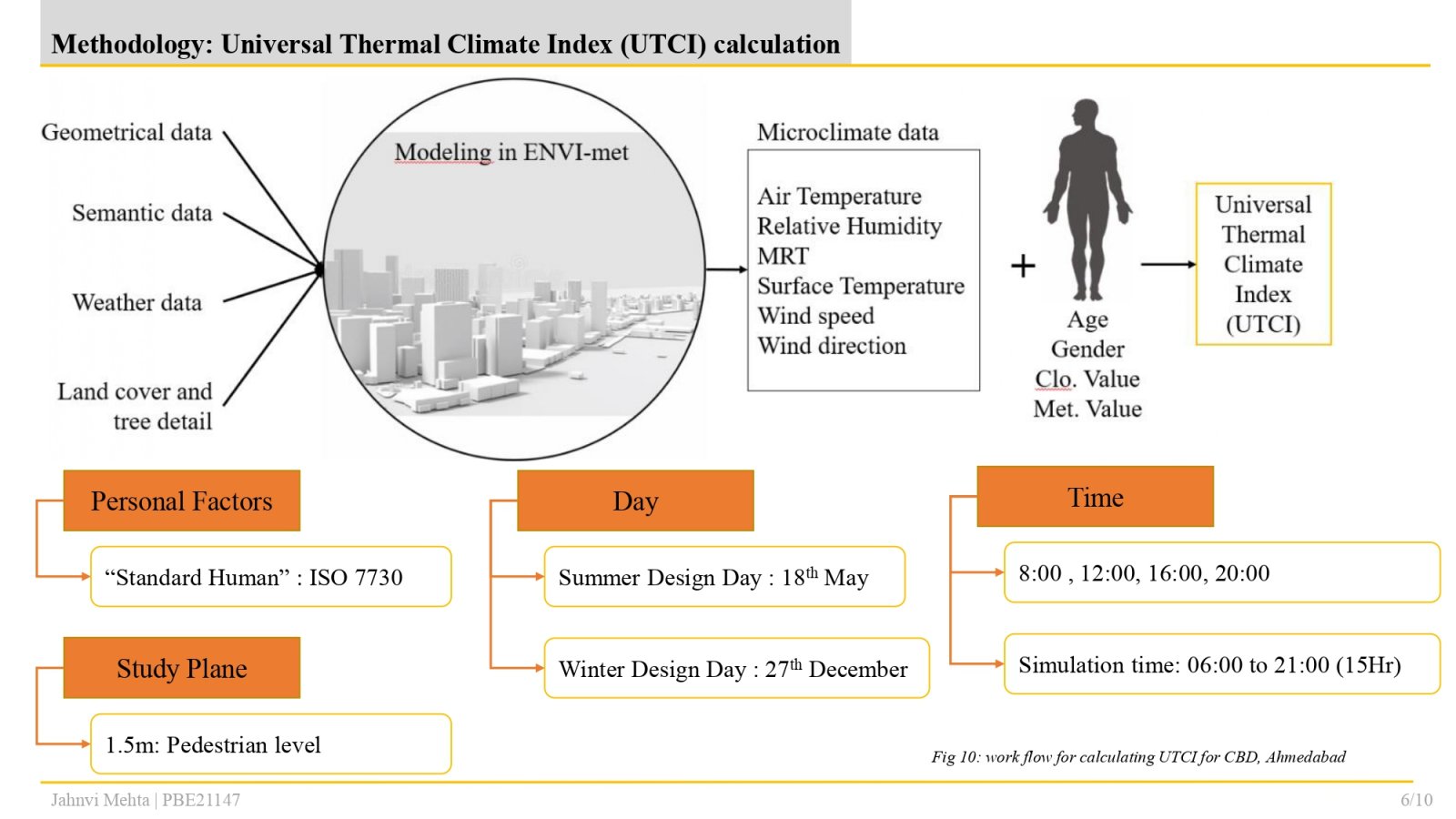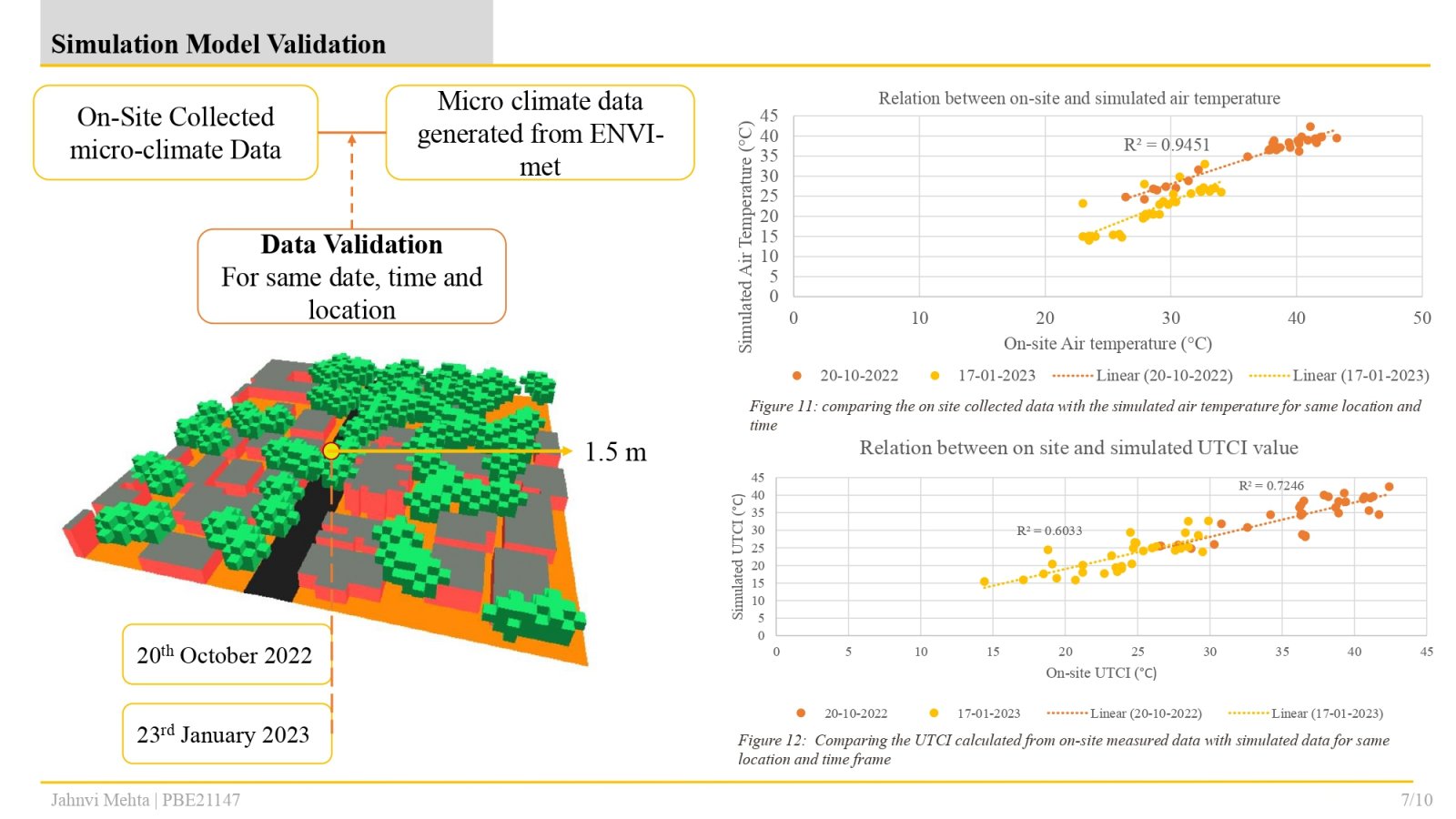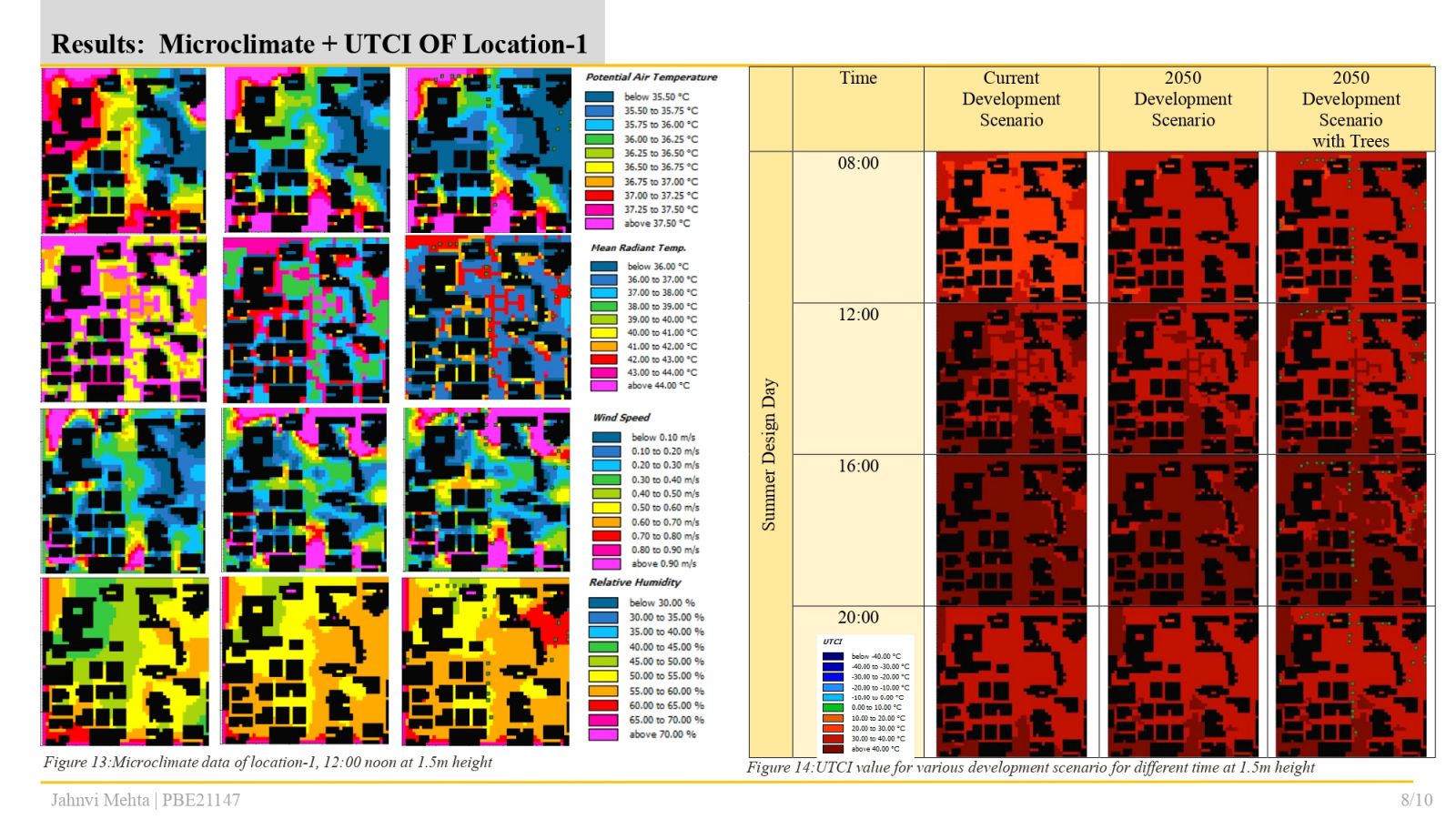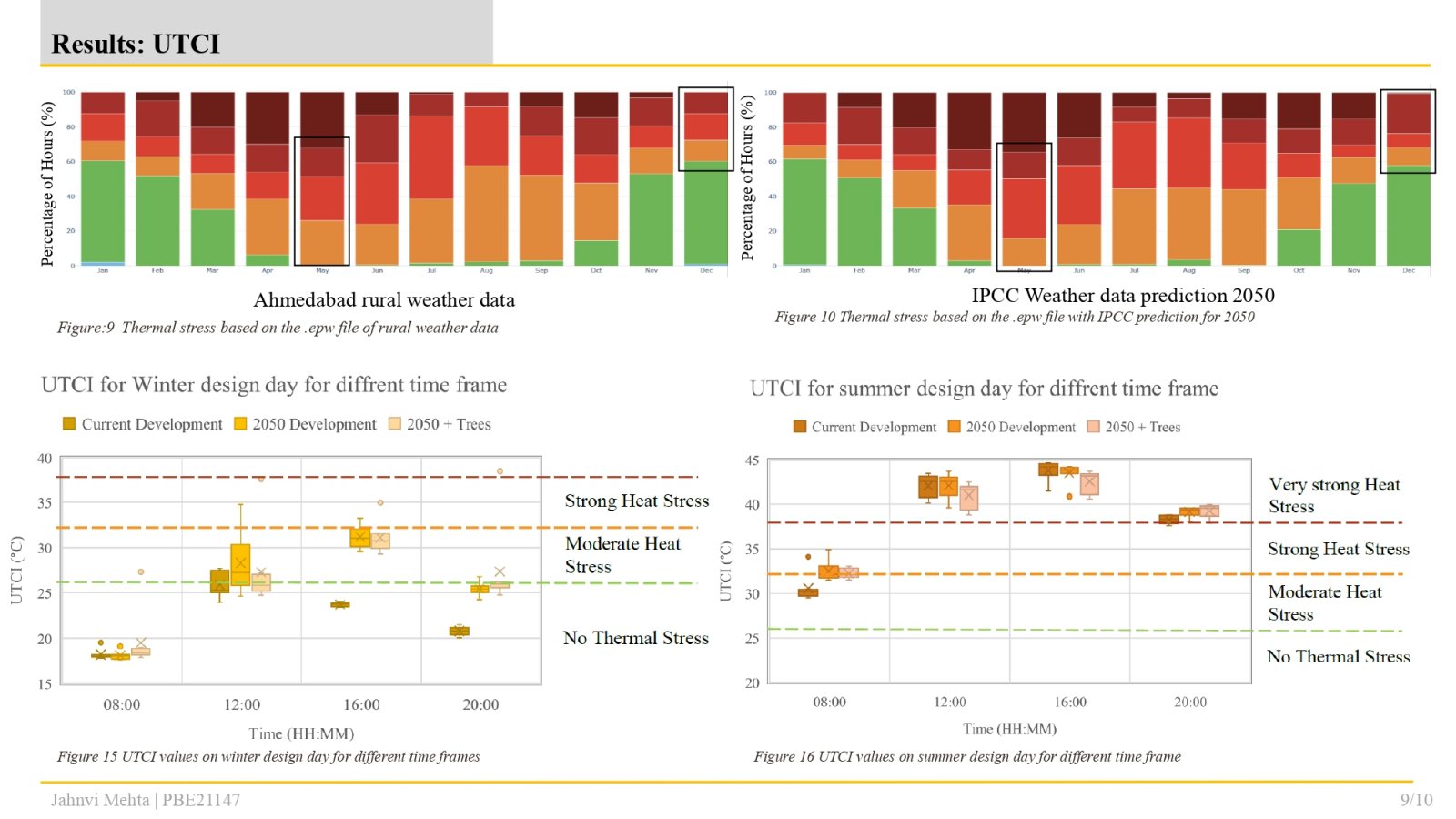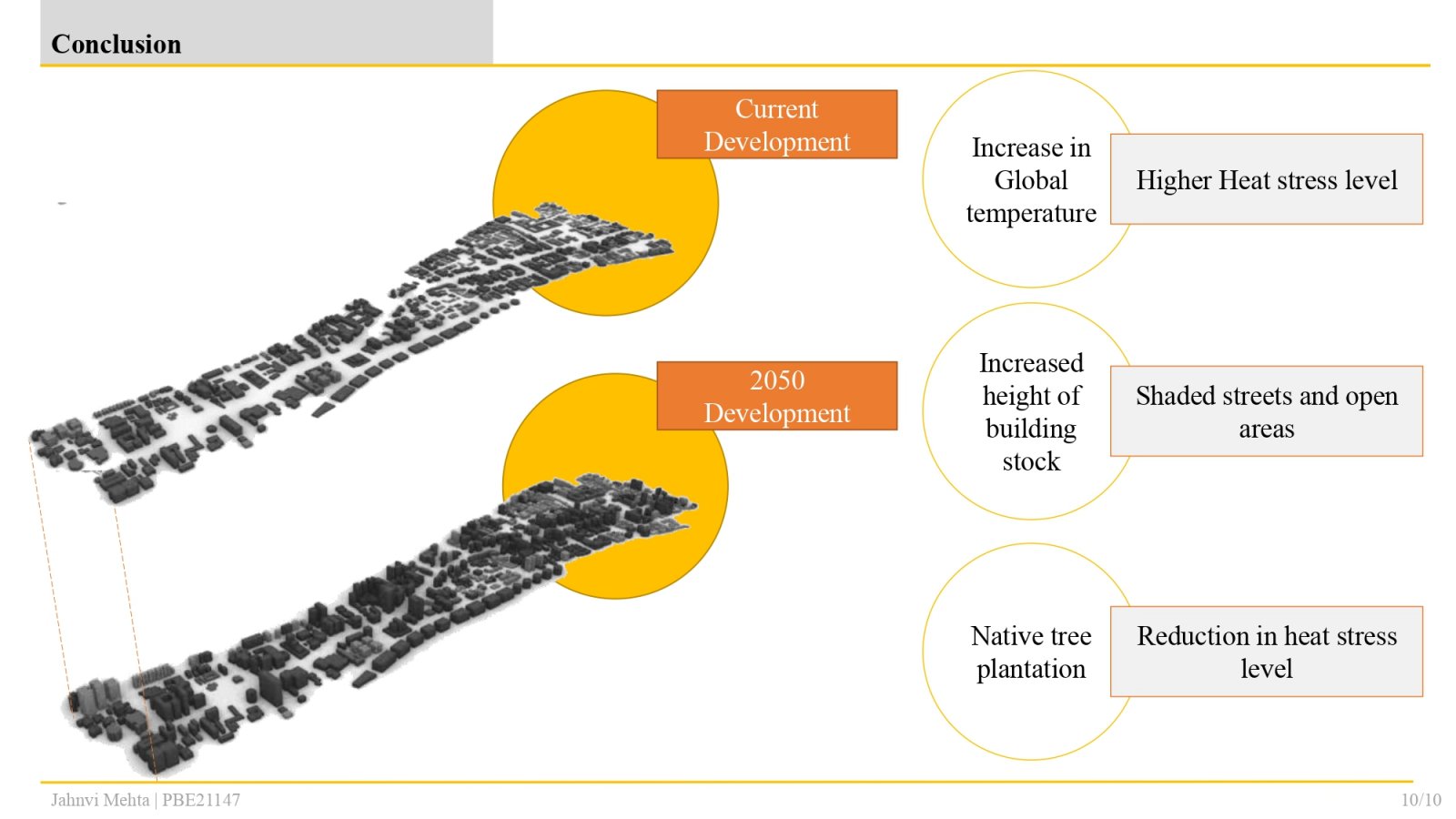Your browser is out-of-date!
For a richer surfing experience on our website, please update your browser. Update my browser now!
For a richer surfing experience on our website, please update your browser. Update my browser now!
In India, the rapid expansion of urban construction accompanied by an increase in global temperature changed the environment of urban regions. This is also impacting the thermal comfort of outdoor urban spaces and resulting in less accessibility to outdoor areas and health hazards. The Ahmedabad municipal corporation (AMC) and the Ahmedabad urban development authority (AUDA), along with HCP architects and planners, have been tackling rapid urbanization by transforming the city center into a vibrant Central business district (CBD), allowing an increase in the Floor Space Index (FSI) from the current 1.8 to 5.4 in the coming decades. However, this increase in FSI, in conjunction with climate change, impacts the outdoor microclimate of this urban area. The Universal thermal comfort index (UTCI) will give an equivalent temperature comprising the effects of various atmospheric factors like relative humidity, air temperature, wind speed, and radiant temperature in relation to the dynamic physiological response of the human body. The assessment of UTCI of CBD area synergistically with shifting FSI will help to understand the influence of urban geometry and densification on outdoor urban thermal comfort
